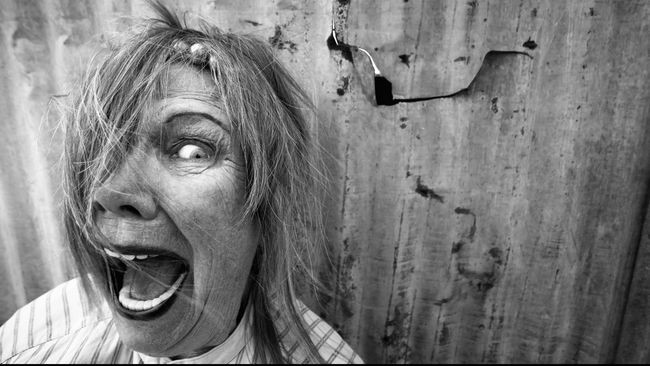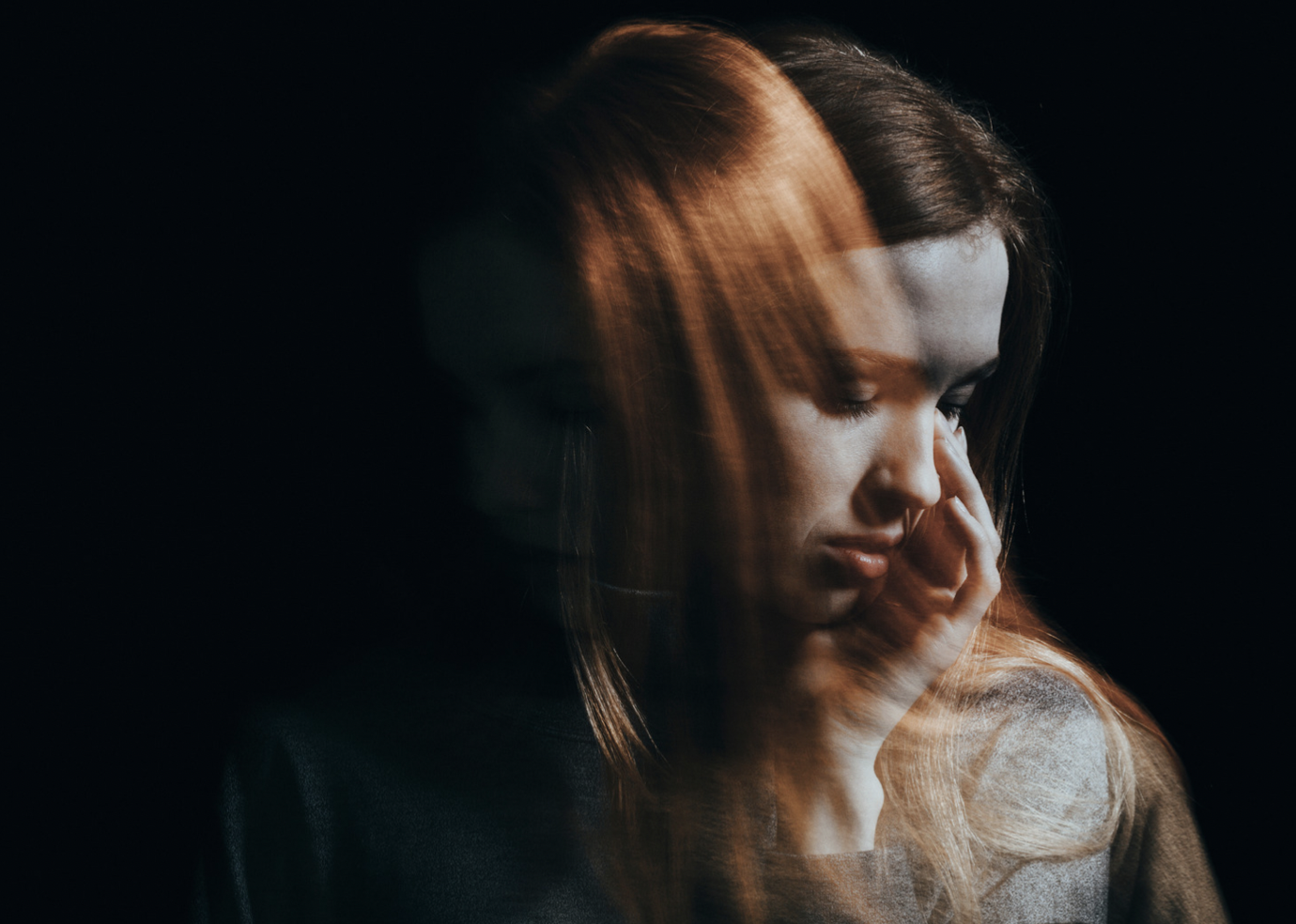Definisi
Gangguan bipolar merupakan kondisi kejiwaan yang ditandai dengan perubahan suasana hati (mood) yang ekstrem yang terdiri dari episode mania atau hipomania dan depresi. Mania adalah saat di mana mood naik, sedangkan hipomania adalah bentuk yang lebih ringan dari mania. Depresi adalah mood yang turun.
Mood yang berubah-ubah dan tidak dapat diprediksi ini akan memengaruhi pola tidur, energi, aktivitas, kemampuan berpikir, perilaku, dan kemampuan membuat keputusan. Oleh karena itu, orang dengan gangguan bipolar dapat mengalami kesulitan yang signifikan dalam menjalani kehidupan sehari-hari.
Bipolar dapat muncul pada usia berapapun namun biasanya banyak terdiagnosis pada remaja atau usia 20 awal, serta bisa terjadi saat kehamilan atau setelah melahirkan.
Penyebab
Penyebab pasti dari gangguan bipolar tidak diketahui, namun terdapat beberapa faktor yang yang berperan, antara lain:
- Faktor biologis, di mana terdapat perubahan pada otak dari orang dengan gangguan bipolar.
- Faktor genetik, di mana gangguan bipolar lebih sering terjadi pada orang yang memiliki keluarga dekat dengan bipolar, misalnya orang tua atau saudara kandung.
Faktor Risiko
Beberapa faktor yang dapat meningkatkan kemungkinan terkena gangguan bipolar atau yang dapat mencetuskannya adalah:
- Riwayat keluarga dekat dengan bipolar.
- Riwayat stress berat, seperti kehilangan orang terdekat atau peristiwa traumatis lainnya.
- Penyalahgunaan obat atau alkohol.
Gejala
Terdapat dua kutub gejala gangguan bipolar yaitu mania atau hipomania, dan depresi. Episode perubahan mood ini dapat terjadi hanya beberapa kali sampai berkali-kali dalam satu tahun.
Mania dan hipomania merupakan dua episode yang berbeda, namun memiliki gejala yang sama. Perbedaannya hanyalah pada mania gejalanya lebih berat daripada hipomania dan menyebabkan masalah yang lebih berat dalam pekerjaan, sekolah, interaksi sosial, dan hubungan. Gejala dapat bervariasi pada setiap orang.
Satu episode mania atau hipomania terdiri dari tiga atau lebih gejala di bawah ini:
- Merasa sangat bahagia
- Merasa sangat berenergi
- Kepercayaan diri tinggi
- Kebutuhan tidur berkurang
- Lebih banyak bicara dari biasanya
- Ide sangat banyak
- Perhatian mudah teralihkan
- Kurang konsentrasi
- Pengambilan keputusan buruk, misalnya saat sedang episode mania menginvestasikan seluruh uangnya tanpa berpikir panjang, atau berbuat aktivitas seksual tanpa memikirkan dampaknya
- Gelisah
Episode depresi mayor terdiri dari gejala yang cukup berat untuk menyebabkan kesulitan dalam aktivitas sehari-hari seperti bekerja, sekolah, dan interaksi sosial. Satu episode ditandai dengan minimal 5 dari gejala di bawah ini:
- Mood turun, merasa sedih, kosong
- Merasa tidak berdaya
- Menangis tanpa sebab yang jelas
- Kehilangan minat atau kesenangan terhadap hal-hal yang biasanya disukai
- Tidak ingin beraktivitas
- Berkurang atau bertambahnya napsu makan
- Penurunan atau kenaikan berat badan yang tidak disengaja
- Sulit tidur atau tidur berlebihan
- Kelelahan
- Merasa kurang energi
- Perasaan tidak berharga dan perasaan bersalah yang tidak jelas sebabnya
- Penurunan kemampuan berpikir, konsentrasi, dan membuat keputusan
- Berpikiran, berencana, atau mencoba bunuh diri
Pada anak dan remaja cukup sulit untuk mengenali gejala dari gangguan bipolar. Meskipun ada gejala seperti itu, sulit untuk ditentukan apakah disebabkan karena gangguan bipolar, perubahan mood yang masih normal, akibat dari adanya trauma atau stress, atau penyakit medis lainnya. Salah satu tanda yang menonjol dari gangguan bipolar pada anak adalah perubahan mood yang snagat nyata dan berbeda dari perubahan mood biasanya.
Diagnosis
Untuk mendiagnosis gangguan bipolar, dokter akan melakukan pemeriksaan fisik dan psikiatri. Bipolar didiagnosis berdasarkan tipenya. Berikut ini adalah tipe bipolar, serta kelainan yang berhubungan dengan bipolar, antara lain:
- Gangguan bipolar tipe I: terdiri dari minimal satu kali episode mania yang berlangsung minimal 7 hari dan dapat didahului atau disusul dengan episode hipomanik atau depresi mayor. Gejala manik biasanya sangat berat sehingga perlu perawatan di rumah sakit. Pada beberapa kasus, mania dapat mencetuskan terjadinya psikosis (kehilangan kemampuan untuk menilai realita) yang membutuhkan perawatan di rumah sakit.
- Gangguan bipolar tipe II: terdiri dari minimal satu kali episode depresi mayor dan minimal satu episode hipomanik, tanpa adanya episode manik. Tipe ini bukan merupakan bentuk yang lebih berat dari tipe I, namun memang merupakan diagnosis yang berbeda.
- Gangguan siklotimik: adanya banyak periode hipomania dan depresi yang tidak berat dan sudah berlangsung setidaknya dua tahun (atau satu tahun pada anak dan remaja).
- Tipe lain: bipolar yang dicetuskan obat, alkohol, atau kondisi medis seperti penyakit Cushing, sklerosis multipel dan stroke.
Dokter juga akan mencari kondisi lain yang sering menyertai bipolar dan memperberat gejala bipolar, serta yang dapat diterapi untuk memaksimalkan kontrol dari gangguan bipolar. Kondisi tersebut diantaranya adalah gangguan cemas, gangguan makan, ADHD, masalah penggunaan obat dan alkohol, dan kondisi medis seperti penyakit jantung, tiroid, obesitas, dan sebagainya.
Terapi
Meskipun gangguan bipolar merupakan kondisi yang seumur hidup, namun gejalanya dapat dikontrol dengan terapi. Terapi utama adalah dengan obat-obatan dan psikoterapi. Pilihan terapi yang tepat akan ditentukan oleh dokter spesialis.
- Obat-obatan: biasanya dibutuhkan untuk mengontrol mood dengan cepat dan untuk menstabilkan mood sehingga mencegah episode. Jenis dan dosis obat akan ditentukan berdasarkan gejala Anda
- Psikoterapi: merupakan bagian penting dari terapi gangguan bipolar dan dapat dilakukan secara individu, dengan keluarga, atau kelompok penderita gangguan bipolar.
Selain dari terapi yang diberikan oleh dokter, Anda juga perlu mengubah gaya hidup dengan menghentikan kebiasaan yang memperparah bipolar. Caranya adalah:
- Berhenti minum alkohol dan memakai obat terlarang.
- Kelilingi diri Anda dengan orang yang memberikan pengaruh positif.
- Buatlah rutinitas yang sehat seperti jadwal tidur, makan, dan olahraga yang teratur untuk menstabilkan mood. Namun, Anda perlu berkonsultasi ke dokter sebelum memulai program latihan fisik tertentu. Anda juga bisa menyampaikan ke dokter jika mengalami kesulitan tidur.
- Konsultasi ke dokter sebelum mengkonsumsi obat lain dari dokter lain karena beberapa obat dapat mencetuskan episode mania atau depresi.
- Buatlah diari mood untuk mencatat mood harian, konsumsi obat, waktu tidur, aktivitas, dan perasaan untuk membantu mencari pencetus episode dan terapi yang tepat.
Komplikasi
Jika tidak ditangani dengan tepat, gangguan bipolar dapat menyebabkan masalah serius pada seluruh aspek kehidupan seperti:
- Masalah penggunaan obat dan alkohol
- Percobaan atau pikiran bunuh diri
- Masalah finansial
- Masalah hukum
- Rusaknya hubungan dengan orang lain
- Buruknya kemampuan kerja atau belajar
Pencegahan
Tidak ada cara untuk mencegah gangguan bipolar, namun ada cara untuk mencegah perburukan gangguan bipolar atau gangguan jiwa lainnya yaitu dengan mendapatkan terapi sedini mungkin. Selain itu, juga terdapat cara untuk mencegah agar gejala yang minor tidak menjadi episode yang berat, yaitu dengan:
- Mengenali tanda episode dan pencetusnya. Jika tanda tersebut timbul Anda dapat langsung berkonsultasi dengan dokter. Anda juga bisa meminta bantuan orang terdekat untuk ikut mengawasi adanya tanda tersebut
- Menghindari obat-obatan yang tidak dari dokter dan alkohol.
- Mengkonsumsi obat bipolar sesuai anjuran dokter. Jangan menghentikan obat jika Anda sudah merasa membaik karena dapat menyebabkan gejala kembali atau bahkan memberat.
Kapan harus ke dokter?
Jika Anda merasakan gejala depresi atau mania, kunjungilah dokter spesialis jiwa karena kondisi ini tidak akan membaik tanpa terapi. Mungkin saat episode mania Anda merasa senang dengan perasaan euforia dan merasa lebih produktif akibat energi yang banyak dan kebutuhan tidur yang kurang, serta ide yang terus mengalir. Namun, setelah episode tersebut berakhir, Anda akan mengalami penurunan mood yang dapat membuat Anda depresi, lelah, dan bahkan akibat episode mania Anda dapat mengalami masalah finansial, hukum, maupun rusaknya hubungan dengan orang sekitar.
Anda perlu menghubungi nomor emergensi atau segera pergi ke IGD jika Anda memiliki pikiran atau sudah mencoba untuk mengakhiri hidup.
- dr Ayu Munawaroh, MKK
Bipolar disorder - Diagnosis and treatment - Mayo Clinic. Mayoclinic.org. (2022). Retrieved 29 January 2022, from https://www.mayoclinic.org/diseases-conditions/bipolar-disorder/diagnosis-treatment/drc-20355961.
Bipolar Disorder. National Institute of Mental Health (NIMH). (2022). Retrieved 29 January 2022, from https://www.nimh.nih.gov/health/topics/bipolar-disorder.
Bipolar UK. Bipolar UK. (2022). Retrieved 29 January 2022, from https://www.bipolaruk.org.












